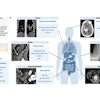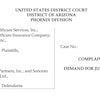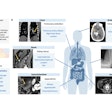
A radiology benefits management (RBM) program that did not allow outpatient advanced imaging studies to be denied still produced a large, prolonged decrease in advanced imaging utilization and costs for a large state Medicaid program, according to a study by RBM firm HealthHelp.
The study reports on a two-year experience with a prior notification program in an outpatient imaging setting for a large state Medicaid fee-for-service population. Even though the program did not allow for imaging services to be denied, there was still a substantial and sustained decrease in advanced imaging utilization and the cost of outpatient advanced imaging, the firm said.
For example, the use of cardiac catheterization dropped among HealthHelp clients from nearly 1.2 units per assessment to less than 0.8 units. The data further showed a 15% to 30% savings for radiation oncology and 12% to 25% savings for medical oncology.



















